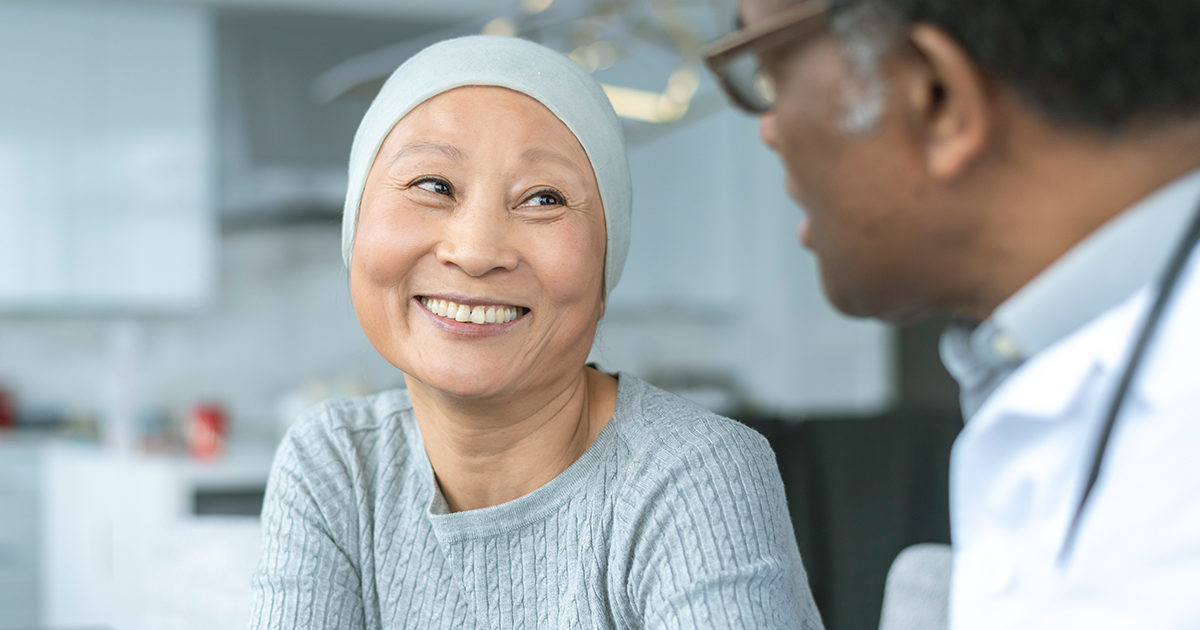About Adrenal Nodules and Tumors
Your endocrine system is a set of organs and glands that produce hormones, which your tissues use to send signals to each other. The adrenal glands sit on top of both of your kidneys and secrete hormones, such as adrenaline and cortisol, which regulate your body’s stress response, circulatory system, and metabolism. Growths known as nodules and tumors are often discovered on the adrenal gland during CT scans of the abdomen performed for other reasons. These are usually not cancerous and may not have any effect on your health. If an adrenal nodule or tumor is identified, your doctor will seek more information about its effect on your hormones and its potential to spread to determine whether and how your condition should be addressed.
Types of Adrenal Nodules and Tumors
Adrenal nodules and tumors are classified based on their characteristics and whether they are benign (noncancerous) or malignant (cancerous). Most adrenal nodules and tumors are noncancerous.
Types of adrenal nodules and tumors include:
- Adrenal adenoma: Most common form of adrenal gland tumor, these noncancerous masses develop on the outer part of the adrenal gland
- Adrenocortical carcinoma: Malignant tumor that forms on the outer part of the adrenal gland
- Neuroblastoma: A form of cancer that is most common in children and may develop in nervous system tissue within the inner portion of the adrenal gland (adrenal medulla)
- Pheochromocytoma: Tumor that forms on the adrenal medulla, which is usually benign
Symptoms of Adrenal Nodules and Tumors
Symptoms of adrenal nodules and tumors may vary, and if a nodule or tumor does not affect hormone secretion, it may not cause any symptoms.
Symptoms of adrenal nodules and tumors may include:
- Anxiety or irritability
- Depression
- Fatigue
- Frequent headaches
- High blood pressure
- Irregular menstrual period
- Loss of bone density
- Low potassium
- Muscle weakness
Risk Factors for Adrenal Nodules and Tumors
Certain people are at greater risk for developing adrenal nodules or tumors.
Risk factors for adrenal nodules and tumors may include:
- Family history: Inherited genetic conditions, such as McCune Albright syndrome, multiple endocrine neoplasm type 1, and hereditary bilateral adrenal adenoma, are associated with adrenal adenomas.
Treating Adrenal Nodules and Tumors at UT Health Austin
Many noncancerous adrenal nodules and tumors do not require treatment unless the growth disrupts hormonal secretion or is malignant (cancerous). Adrenal nodule and tumor treatment at UT Health Austin begins with a consultation in which an endocrine surgeon will evaluate the extent of your condition and determine whether it is best addressed using surgery or some other method. Your care team will work with you to determine the best course of treatment.
Care Team Approach
At UT Health Austin, we take a multidisciplinary approach to your care. This means you will benefit from the expertise of multiple specialists across a variety of disciplines caring for you in one place to avoid having to schedule multiple appointments with providers at locations all over the city. The Surgical Oncology Clinic team includes a fellowship-trained endocrine surgeon who specializes in diagnosing and treating cancerous and noncancerous conditions that affect the thyroid, parathyroid, and adrenal glands. Whether your endocrine condition is cancerous or not, the Surgical Oncology team works closely with your referring provider to provide integrated, whole-person care.
Through our Multidisciplinary Case Conferences, we collaborate with our colleagues at the Dell Medical School and The University of Texas at Austin to utilize the latest research, diagnostic, and treatment techniques, allowing us to identify new therapies to improve your treatment. We focus on applying advanced surgical techniques, including minimally invasive approaches, and nonsurgical treatments such as radiofrequency ablation. These procedures are offered with comprehensive attention to your complex needs, including medication management, nutrition, physical therapy, psychosocial wellbeing, and financial support. Advanced imaging and lab testing are also available on-site if needed.
Learn More About Your Care Team

Surgical Oncology
Health Transformation Building, 8th Floor
1601 Trinity Street, Bldg. A, Austin, Texas 78712
1-833-UT-CARES (1-833-882-2737)
Get Directions